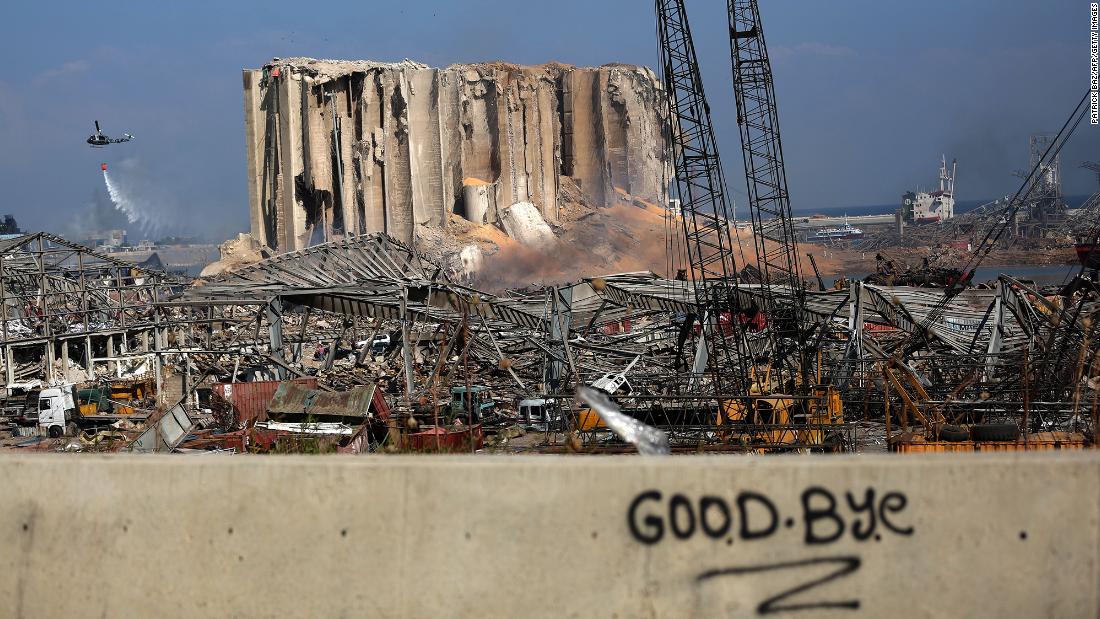Yesterday, the residents of Beirut awoke to the aftermath of the large blast that shook the Lebanese capital Beirut on Tuesday. The massive explosions that hit the country’s main port have killed at least 100 people and injured more that 5000 others, as reported by the Lebanese health minister.
While the reason behind the blast was not immediately determined, Lebanese senior officials blamed the 2,750 tonnes of ammonium nitrate –a highly-explosive material– that had been improperly stored in one of the port’s warehouses for six years.
Watch also: Beirut Blast: Political Negligence is What Decimated The Lebanese Capital
Many theories have been proposed analyzing the accident that ignited the explosion in the port, none of which have been proven. Lebanese officials refuse to give any solid information regarding the matter before the results of the five-day investigation.
Some say the explosion was sparked by fireworks that caught fire and spread to the ammonium nitrate while others relate yesterday’s tragedy to the conflict between Israel and Hezbollah.
On the one hand, a security source stated that the explosion started while welding work was being carried out at the Port of Beirut.
The blast that destroyed Beirut exposed yet another deadly scandal of the Lebanese government. The analysis of some public records uncovered evidence showing that Lebanese officials had known about the explosive material that was improperly stored in the port and were aware of the risks it posed.
According to Al Jazeera, the cargo of ammonium nitrate arrived in Lebanon in 2013 after the Russian vessel carrying it had to dock in Beirut because of the technical problems it was facing. After the Lebanese officials did not allow the vessel to sail, the dangerous cargo was confiscated and placed in Hangar 12 of the Beirut port.
Considering the danger this material had posed, then-director of Lebanese Customs Shafik Merhi sent a letter to an unnamed “Urgent Matters Judge” calling for quick solutions to the cargo in 2014.
Over the next three years, many letters were sent by customs officials calling for action and suggesting solutions that include exporting the ammonium nitrate, giving it up to the Lebanese Army, or selling it to the Lebanese Explosives Company. Another letter sent in 2016 mentioned that all previous requests were never answered.
One last letter was sent to a judge by the new Lebanese Customs Administration Director, Badri Daher, in 2017 to highlight the problem once more.
The fact that the toxic material was still in Beirut’s port until yesterday afternoon adds another point to the Lebanese government’s list of failures.
In the midst of the chaotic and distressing situation we are witnessing, Prime Minister Hassan Diab assured the Lebanese people that those who were proved to be responsible for the incident will be held accountable.
Meanwhile, journalists and citizens blame Diab and other officials for the presence of the dangerous substance in the port. Lebanese officials, they say, were well-warned about its toxicity and potential risk.
“Lebanese leaders, including Hassan Diab, knew about the explosive material stored in the city’s port and were warned that this combustible substance can result in the complete destruction of Beirut if exploded,” said journalist Michel Kanbour in an interview with Sar El Waet on MTV.
Based on such statements, the list of accused parties is expanding to include Lebanese leaders.
Fireworks, Israeli missile strike, welding work. All these are still assumptions. The only truth is that the combustible substance that exploded was not supposed to be in the Beirut port for this long, ignored by the Lebanese leaders.


